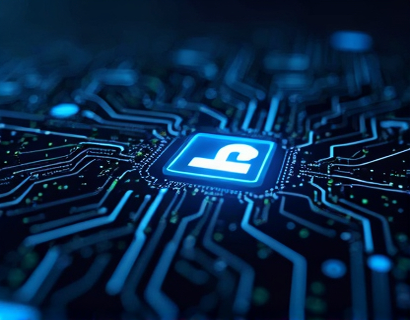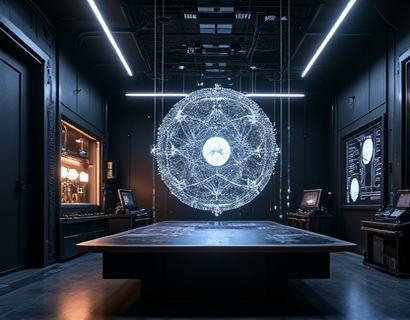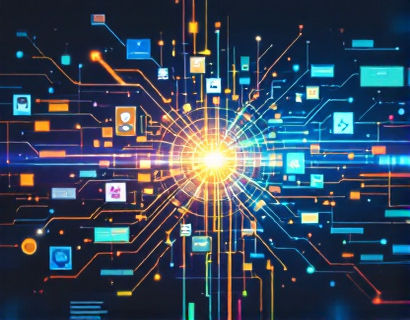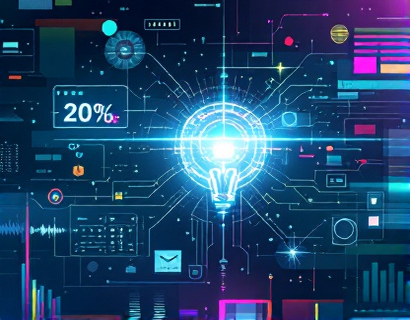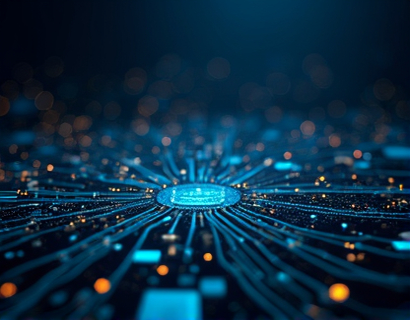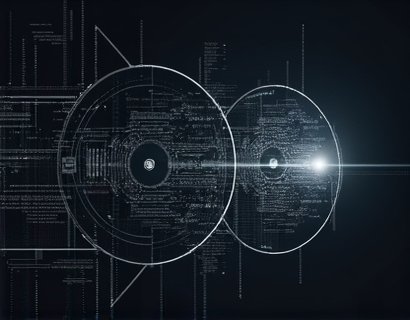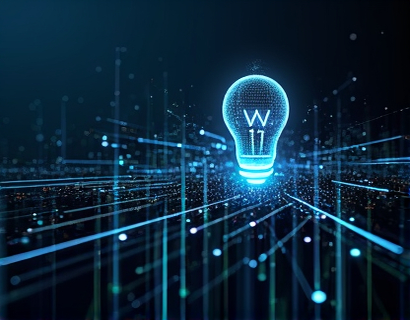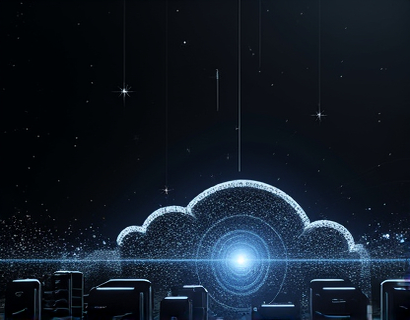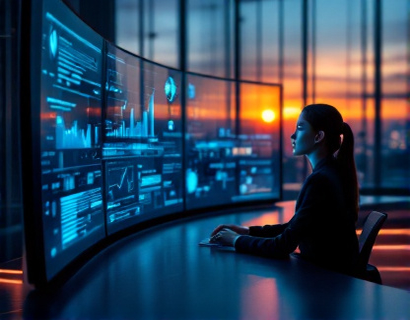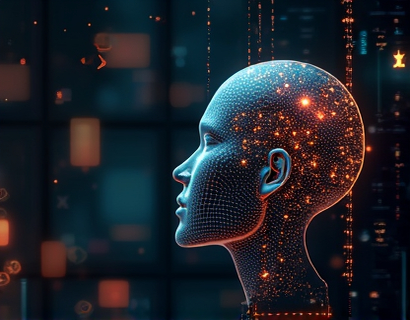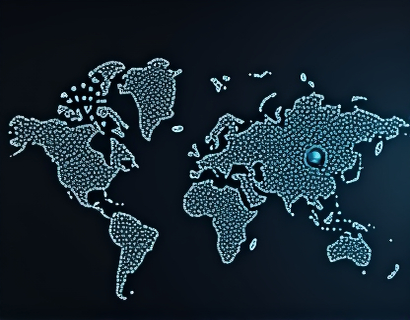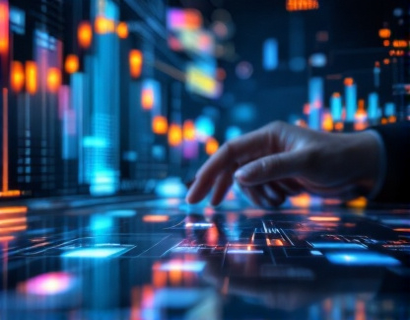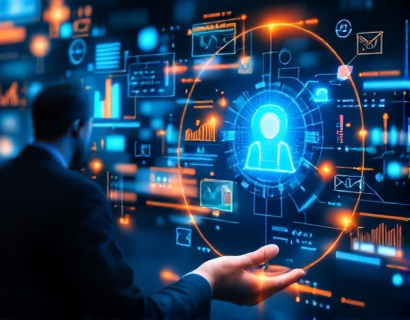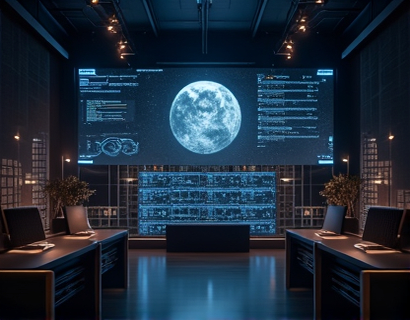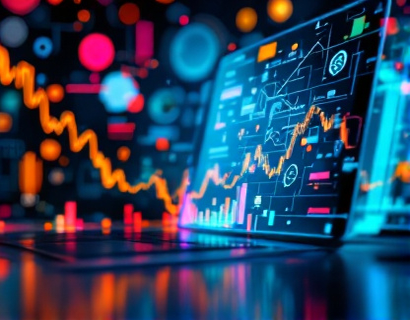Powering the Future of Digital Engagement: The Synergy of Crypto and AI
The intersection of cryptocurrency and artificial intelligence (AI) is giving birth to a new era of digital engagement, one that promises to redefine how users interact with technology and each other. This convergence is not just a technological advancement but a transformative shift that is driving exponential growth across various sectors. As we delve into this topic, we will explore the latest innovations and trends that are shaping the future of digital experiences, providing deep insights for tech enthusiasts and professionals alike.
The integration of blockchain technology with AI is creating a robust framework for secure, transparent, and efficient digital interactions. Blockchain's inherent properties of immutability and decentralization, combined with AI's ability to process and analyze vast amounts of data, are paving the way for innovative solutions that enhance user trust and engagement. This synergy is particularly evident in the development of decentralized applications (dApps) and smart contracts, which are revolutionizing industries from finance to healthcare.
Decentralized Applications and Smart Contracts
Decentralized applications, or dApps, are applications that run on a blockchain network rather than a centralized server. This decentralized nature ensures that dApps are less susceptible to censorship, downtime, and data breaches. AI plays a crucial role in enhancing the functionality and user experience of these applications. For instance, AI-driven algorithms can optimize the performance of dApps by predicting user behavior and adjusting resources in real-time. This not only improves efficiency but also ensures a seamless user experience.
Smart contracts, self-executing contracts with the terms directly written into code, are another area where AI and blockchain intersect. AI can be used to automate the execution of smart contracts based on predefined conditions, reducing the need for intermediaries and lowering transaction costs. This automation is particularly beneficial in complex transactions where multiple parties are involved, ensuring that all conditions are met accurately and efficiently.
Enhanced User Authentication and Security
One of the most significant benefits of combining AI with blockchain is the enhancement of user authentication and security measures. Traditional authentication methods are often vulnerable to hacking and fraud, but blockchain-based identity verification, powered by AI, offers a more secure alternative. AI algorithms can analyze patterns and anomalies in user behavior to detect and prevent fraudulent activities in real-time. This proactive approach to security not only protects user data but also builds trust in digital platforms.
Furthermore, AI-driven biometric authentication, when integrated with blockchain, provides a highly secure and user-friendly method of verification. This combination eliminates the need for passwords and other easily compromised credentials, making digital interactions safer and more convenient. As more platforms adopt these advanced security measures, users can expect a significant improvement in the overall security of their digital experiences.
Personalized User Experiences
The ability of AI to process and analyze vast amounts of data makes it an ideal tool for creating personalized user experiences. In the context of blockchain and digital engagement, AI can leverage user data to offer tailored content, recommendations, and services. This personalization is not only more engaging for users but also increases the likelihood of sustained interaction with digital platforms. For example, AI can analyze a user's preferences and past behavior to curate a news feed or suggest products that align with their interests, all while ensuring that the data is stored securely on a blockchain network.
Moreover, AI-powered chatbots and virtual assistants can provide 24/7 customer support, answering queries and resolving issues in real-time. These AI-driven tools can understand natural language and adapt to user preferences, making the interaction feel more human-like and intuitive. This level of personalization not only enhances user satisfaction but also fosters loyalty and long-term engagement.
Fractional Ownership and Tokenization
The tokenization of assets, enabled by blockchain technology, is another area where AI is making a significant impact. Tokenization allows physical or digital assets to be divided into smaller, tradable units called tokens. This process, combined with AI-driven market analysis, opens up new opportunities for fractional ownership. Users can now invest in high-value assets, such as real estate or art, with a much smaller capital outlay. AI algorithms can analyze market trends and predict asset values, helping investors make informed decisions and maximize their returns.
Additionally, AI can optimize the trading of these tokens by identifying the best times to buy or sell based on market conditions. This level of automation and insight is particularly valuable in volatile markets, where timing can be crucial. The combination of tokenization and AI-driven analytics is democratizing access to investment opportunities, making it possible for a broader range of individuals to participate in the economy.
Supply Chain Transparency and Efficiency
The supply chain industry is another sector that stands to benefit greatly from the integration of AI and blockchain. AI can optimize supply chain operations by predicting demand, managing inventory, and streamlining logistics. When combined with blockchain, this optimization is taken to a new level of transparency and efficiency. Blockchain provides an immutable and transparent ledger of all transactions, ensuring that every step of the supply chain is traceable and verifiable. AI can analyze this data to identify bottlenecks, reduce costs, and improve overall efficiency.
For consumers, this means higher quality products, faster delivery times, and greater transparency about the origin and journey of the goods they purchase. Businesses benefit from reduced operational costs and enhanced reputation due to the increased trust and accountability provided by blockchain and AI. This synergy is particularly important in industries where traceability and quality control are critical, such as food and pharmaceuticals.
Content Creation and Intellectual Property
The creative industry is also witnessing a transformation thanks to the convergence of AI and blockchain. AI-powered tools can assist artists, writers, and musicians in generating new content, from music compositions to visual art. These tools can analyze existing works and suggest novel ideas or variations, expanding the creative possibilities for artists. Blockchain, on the other hand, ensures that creators can securely and transparently own and monetize their digital assets. Smart contracts can automate royalty payments, ensuring that creators receive fair compensation for their work.
Furthermore, blockchain-based platforms can verify the authenticity and ownership of digital content, combating issues like piracy and unauthorized use. AI can help in content moderation and copyright infringement detection, further protecting the rights of creators. This combination of AI and blockchain is not only empowering creators but also fostering a more equitable and sustainable creative ecosystem.
Challenges and Considerations
While the potential of AI and blockchain in digital engagement is vast, there are several challenges and considerations that need to be addressed. One of the primary concerns is the regulatory landscape. As these technologies evolve, governments and regulatory bodies are still grappling with how to govern them effectively. Ensuring compliance with existing laws while fostering innovation is a delicate balance that requires ongoing dialogue and collaboration.
Another challenge is the technical complexity involved in integrating AI and blockchain solutions. Developers need to possess a deep understanding of both technologies to create robust and secure applications. Education and training programs are essential to build a skilled workforce capable of driving this technological revolution forward.
Additionally, there are concerns about the environmental impact of blockchain, particularly proof-of-work (PoW) systems, which require significant computational power and energy consumption. The development of more sustainable consensus mechanisms, such as proof-of-stake (PoS), is crucial to mitigating these concerns. AI can play a role in optimizing energy usage and improving the efficiency of blockchain networks.
Future Outlook
Looking ahead, the integration of AI and blockchain is poised to continue transforming the digital landscape. As these technologies mature, we can expect to see even more innovative applications across various industries. The convergence of AI, blockchain, and other emerging technologies like the Internet of Things (IoT) will create a more interconnected and intelligent world. Users can anticipate more seamless, secure, and personalized digital experiences that enhance their daily lives.
For tech enthusiasts and professionals, staying informed about the latest developments in AI and blockchain is essential. Continuous learning and adaptation will be key to thriving in this rapidly evolving field. The future is bright, and the possibilities are endless as we harness the power of these technologies to build a more connected and efficient world.



